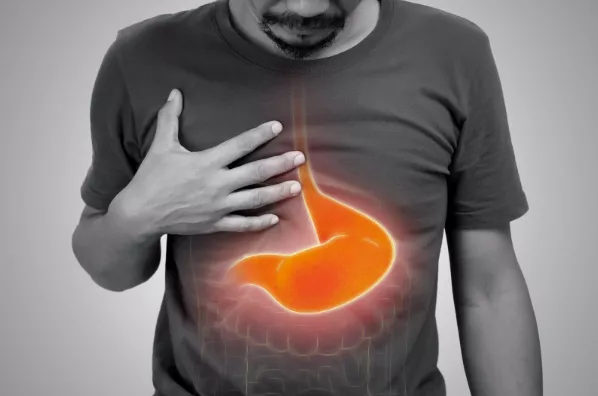Stomach ulcers, also known as gastric ulcers, are painful sores that form on the lining of your stomach. They are a type of peptic ulcer disease (PUD), which also includes duodenal ulcers that occur in the small intestine. Understanding stomach ulcers, their causes, symptoms, and treatment options can help you manage or even prevent this common condition. Below, we delve into everything you need to know about stomach ulcers, including actionable tips and frequently asked questions.

What Causes Stomach Ulcers?
Stomach ulcers develop when the protective mucus lining of the stomach is eroded, allowing stomach acid to damage the underlying tissues. This process can result from several factors, with the most common being:
1. Helicobacter pylori (H. pylori) Infection
H. pylori is a bacterium that affects the stomach lining, reducing its ability to protect against acid. This infection is responsible for 80–90% of stomach ulcers.
2. Long-Term Use of Nonsteroidal Anti-Inflammatory Drugs (NSAIDs)
Medications such as aspirin, ibuprofen, and naproxen can irritate the stomach lining and lead to ulcers, especially with prolonged use.
3. Other Contributing Factors
Additional risk factors that can weaken the stomach lining include:
- Zollinger-Ellison Syndrome: A rare condition causing excessive stomach acid production.
- Smoking and Alcohol Consumption: Both habits can increase stomach acid and reduce mucus protection.
- Cancer Treatments: Chemotherapy and radiation may damage the stomach lining.
- Viral Infections and Chronic Diseases: Conditions like Crohn’s disease may predispose individuals to ulcers.
Can Food Cause Stomach Ulcers?
Contrary to popular belief, no specific foods directly cause stomach ulcers. However, certain foods may exacerbate symptoms, such as spicy dishes, acidic foods, or alcohol. Eating a balanced diet and avoiding trigger foods can help alleviate discomfort but won’t cure the underlying ulcer.
Symptoms of Stomach Ulcers
The severity of stomach ulcer symptoms can vary, but common signs include:
1. Burning Abdominal Pain
Pain is often felt between the chest and belly button and may worsen when the stomach is empty. Eating might temporarily relieve the discomfort for some people.
2. Additional Symptoms
- Heartburn or indigestion
- Nausea and vomiting
- Abdominal tenderness
- Bloating and a feeling of fullness
- Unintentional weight loss
- Vomit that appears bloody or like coffee grounds
- Dark, tarry stools (a sign of bleeding)
Seek immediate medical attention if you experience severe symptoms, as complications from untreated ulcers can be life-threatening.
How Are Stomach Ulcers Diagnosed?
Diagnosing a stomach ulcer typically involves a combination of medical history, symptom evaluation, and diagnostic tests. Here are the most common methods:
1. Tests for H. pylori Infection
- Breath Test: Detects carbon dioxide released by H. pylori.
- Stool Test: Checks for the presence of the bacterium.
- Blood Test: Identifies antibodies to H. pylori.
2. Endoscopy
A thin, lighted tube with a camera is inserted through the mouth to examine the stomach lining. This procedure allows the doctor to detect ulcers and collect a tissue sample for a biopsy if necessary.
Treatment Options for Stomach Ulcers
Treatment depends on the cause and severity of the ulcer. Here are the main approaches:
1. Medications
- Antibiotics: Prescribed to eradicate H. pylori infections.
- Proton Pump Inhibitors (PPIs): Reduce stomach acid production, promoting healing.
- H2 Receptor Blockers: Decrease acid levels in the stomach.
- Antacids: Provide quick relief from pain and discomfort.
2. Surgical Treatment
Surgery may be necessary for severe cases involving complications such as bleeding or perforation. Surgical options include:
- Removing the ulcer entirely.
- Patching the ulcer with tissue from another area.
- Cutting nerves to reduce acid production.
Home Remedies for Stomach Ulcers
While not a replacement for medical treatment, some home remedies may offer relief from stomach ulcer symptoms:
- Flavonoid-Rich Foods: Include apples, berries, and green tea in your diet.
- Probiotics: Found in yogurt and fermented foods, they may help maintain stomach health.
- Aloe Vera Supplements: Known for their soothing properties.
When to See a Doctor
Contact a healthcare professional if:
- Your symptoms persist or worsen despite treatment.
- You notice black, tarry stools or vomit that resembles coffee grounds.
- You experience sudden, sharp abdominal pain.
Complications of Stomach Ulcers
Untreated stomach ulcers can lead to serious complications, such as:
- Bleeding Ulcers: Resulting in significant blood loss.
- Perforation: When the ulcer creates a hole in the stomach wall.
- Obstruction: Swelling can block food from passing into the intestines.
- Penetration: Ulcer erodes into nearby organs.
Preventing Stomach Ulcers
Here are some actionable steps to reduce your risk:
- Limit NSAID Use: Follow your doctor’s guidelines for pain relief.
- Practice Good Hygiene: Wash your hands regularly to avoid H. pylori.
- Cook Foods Properly: Especially meat and seafood, to prevent infections.
- Avoid Smoking and Excess Alcohol: These can damage the stomach lining.
Frequently Asked Questions (FAQs)
1. Can stomach ulcers heal on their own?
In some cases, mild stomach ulcers may heal with lifestyle changes and antacid use. However, most ulcers require medical treatment to prevent complications.
2. What foods are good for healing stomach ulcers?
Foods rich in probiotics (e.g., yogurt), flavonoids (e.g., apples and berries), and antioxidants can support stomach health, although they won’t directly heal ulcers.
3. Can stress cause stomach ulcers?
While stress doesn’t directly cause ulcers, it can exacerbate symptoms or slow the healing process.
4. Is milk good for stomach ulcers?
Milk may provide temporary relief from ulcer pain, but it can stimulate acid production, potentially worsening the condition.
5. How long does it take to recover from a stomach ulcer?
With proper treatment, most stomach ulcers heal within 4 to 6 weeks. Complicated cases may take longer.




